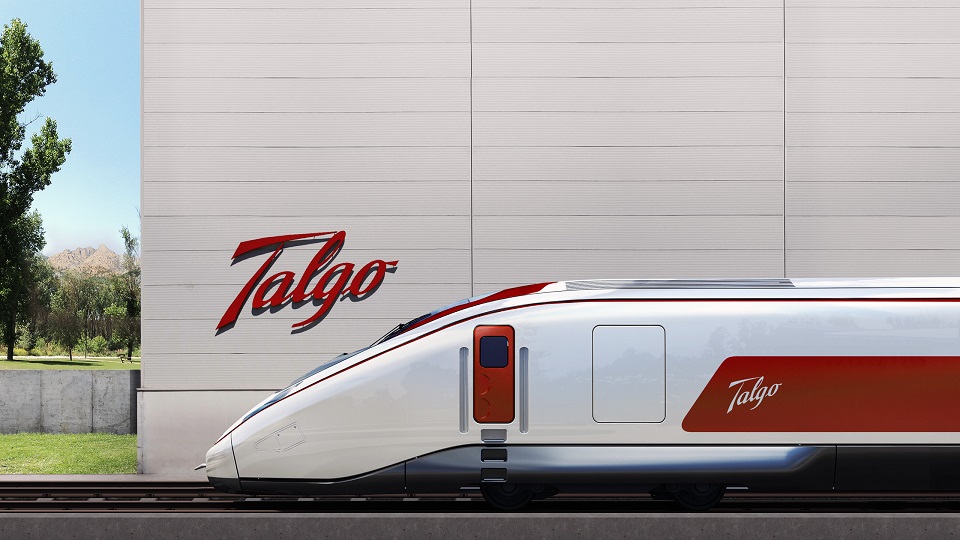Spain’s Transport Minister Óscar Puente has warned that Renfe’s ‘obsolete’ high-speed fleet, combined with the problems plaguing the new Talgo Avril trains, will bring two difficult years of incidents. The long-term solution, he says, is a shift to regular train purchases instead of 15-year-long gaps followed by bulk orders.
Speaking before the Transport Commission in Congress last week, Spain’s Minister of Transport, Óscar Puente, warned that the country’s rail network was in for a rocky ride in the years to come due to the state of Renfe’s high-speed fleet. He said that Renfe’s 125-strong AVE trains were reaching the end of their life and that Talgo’s new Avril units, meant to replenish the fleet, were failing to deliver.
He went on to tell MPs that he anticipates “a critical two years” of incidents, urging a shift to periodic fleet acquisitions to avoid breakdowns clustering at the end of each cycle: “We can’t go 15 years without purchasing trains and then suddenly order 400.”
Puente’s high-speed warning
In Congress, Puente was blunt about Renfe’s vulnerabilities. “The deterioration of a large portion of Renfe’s high-speed fleet has become one of the clearest weaknesses of the Spanish railway system,” he said. The AVE units entered service between the 1990s and early 2000s, and are now approaching the end of their working lives. At the same time, the new Talgo Avril fleet, contracted in 2016 and delivered nearly two years late, is generating headlines for the wrong reasons.
The minister stressed that bulk procurement has created a cliff edge for Renfe. “We need to make periodic purchases to anticipate rolling stock obsolescence and prevent the entire fleet from approaching the end of its life cycle at once.” He underlined the urgency of the moment by pointing to his trip to Düsseldorf this week, where he met Siemens executives “to obtain railway equipment as soon as possible.”
Another week of delays
The warning of disruption and future problems proved prescient: Puente’s appearance in front of Congress coincided with yet another serious breakdown on Spain’s rail network. On Thursday, Adif’s computer servers failed, paralysing high-speed operations to and from Madrid for hours. Departure screens at Chamartín and Atocha went dark, while trains on the southern and northwestern corridors were halted mid-journey for up to half an hour. Although emergency systems were activated and traffic gradually resumed, thousands of passengers faced cancellations and long waits.
 Renfe is having ever more problems with its Avril trains. © Talgo
Renfe is having ever more problems with its Avril trains. © Talgo
This was not a failure linked to Renfe’s ageing fleet, but to Adif’s infrastructure systems. It is perhaps no surprise that Puente has been keen to focus attention on rolling stock, an area where his government can blame previous administrations for long gaps in procurement. Yet train disruptions are fast becoming a political liability in Spain, with the opposition seizing on every incident to portray the railways as descending into chaos and to target a transport ministry already under pressure.
‘A critical two years’
The disruption last week capped a summer of high-profile meltdowns that have left passengers increasingly sceptical about the reliability of Spain’s trains. Services have been halted en masse by signalling failures, passengers have been evacuated after onboard fires, and breakdowns have repeatedly stranded travellers in tunnels or out on the open track.
Of the more than 71,000 medium- and long-distance journeys so far in 2025, only 68.2% arrived on time. More than 11,500 trains failed to get to their destination within 15 minutes of schedule, while nearly 6,000 were delayed by 15–30 minutes. And the average delay across all services has risen to 6.2 minutes, with July peaking at just over 10 minutes.
Puente went on to admit that Spain faces “a critical two years” as old and new fleets must coexist. He defended the railway’s performance in the face of growing demand, insisting that “only in Switzerland are trains more punctual than in Spain.” But he acknowledged rising disruption: incidents linked to external factors such as fires and cable thefts have climbed from 7% last summer to 23% this year. Far from all of this is down to problems with Renfe’s rolling stock. However, the failure of Renfe’s new Talgo Avril trains to live up to expectations has clearly left a big hole in the near future of Spain’s high-speed network.
Talgo Avril under fire
Indeed, today Renfe will withdraw the five Avlo-branded Avrils from the Madrid–Barcelona corridor after cracks were found in bogies and repeated complaints of vibrations and abnormal noise at high speed. The decision removes Spain’s flagship next-generation train from its busiest line, where Avlo had built a 12% market share.
Puente described the withdrawal as a “necessary measure,” but admitted it leaves Renfe scrambling for alternatives. In Congress, he reminded MPs that “new trains haven’t been added to the local rail network since 2008, and none have been added to the medium and long-distance lines since 2010… until the failed Avril trains arrived.” He argued it is normal for new fleets to suffer “problems at the beginning of their operation,” but conceded that reliability issues will continue to affect passengers. For Puente, the answer could only be more procurement, spread across time: “If we don’t renew the fleet, we won’t be able to improve the service.”
Puente’s call may seem natural given Spain’s current problems, but it marks a break with the traditional way most European countries buy trains: very large, standardised orders that secure economies of scale. Spain itself followed that model, going more than a decade without purchases before ordering nearly 400 units in one go. Staggered procurement may avoid such cliff edges, but it does raise questions about cost, standardisation, and supplier willingness to negotiate smaller batches.
For now, Renfe must juggle an ageing fleet with an unreliable new one, and while Puente may hope a quick Siemens deal offers political cover, a long-term shift in procurement will not ease the immediate strain on Spain’s high-speed network.
Subscribe to gain access to all news
Already have a subscription? Log in.
Choose your subscription
Or
Want to read this article for free?
You can read one free article per month. Enter your email and we’ll send you a free link to access the full article. No payment required.



